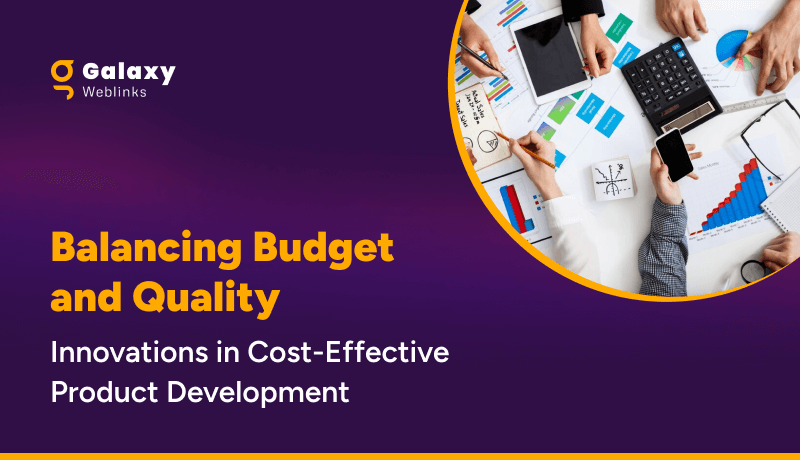Building a scalable product is a best practice and necessity, even if you’re starting out. Because once you get that user validation, scaling becomes difficult and not so cost-efficient. So you outsource backend in order to move things around to accommodate more users and tackle heavier loads.
Now think about when you’re building an application, you need to get two major things right i.e. Frontend (what users see and interact with) and the backend (what happens in the background, invisible to users). For this blog we’re focusing on the backend side of things. Django backend framework to be precise.
The Backend runs on a server, that’s why it’s called server-side of the application. Although invisible, this server-side of the application holds great importance in terms of performance. Hence, choosing the right backend framework becomes critical, if you want to avoid slow, buggy, and overall bad user experience. For this blog we’re taking a look at Django and its relevance in 2021 as a backend framework.
Relevance of Django in 2021
Django provides generic functionalities to build a web app without many hassles, as it comes equipped with solutions that eliminate the need of writing everything from scratch. Django code is reusable, which subsequently helps in cost and time reductions in development.
Django is a batteries-included framework. And, for the Frontend part, depending on your goals, you can select and combine different complementary frontend elements with Django.
Benefits of Choosing Django as Your Backend Development Framework
As mentioned earlier Django is batteries included so it comes with everything you need to build an MVP right out of the box. Provided you have user flow, information architecture and UX of the product planned to a T. Some other benefits are as follows:
- Out of the box Django comes equipped with Content administration, site maps, RSS, user authentication, etc.
- Django provides you with a production ready admin interface, you just have to define your models. It also lets you add and authenticate users with different levels of permissions.
- Django likes to keep URLs clean and elegant, so it avoids putting any cruft in URLs, like .php or .asp.
- Django is equipped with templates to help avoid security attacks like cross-site scripting, cross-site request forgery, clickjacking and SQL injection.
- Scalability is one of the strong suits of Django and some of the famously large organizations across the globe use Django to build scalable web applications.
- If we talk about versatility, Django is used to build robust backends for CMSs to Social Networks.
Why Do You Need Django in 2021?
If you were to do backend development from scratch, you will realize that raw SQL queries will be needed to manipulate the database and soon enough it will stop scaling. Subsequently you might end up writing your own wrapper on top of the raw SQL queries, to keep the code DRY.
Now your users are interacting with the interface with raw queries. Which in turn makes your app vulnerable to SQL injection. Security vulnerabilities don’t just stop there, the app will be exposed to cross site scripting and clickjacking.
Even if you even managed to tackle these security vulnerabilities, which is tedious to say the least, exposing the backend to the frontend of a web/mobile app in 2021 is even more difficult.
Django Usage Across Industries and Countries
Here are the industry-wise and country-wise stats of Django usage. About 30,699 live websites run on Django.


Reasons to Choose or Not to Choose Django
If you need Machine Learning and Artificial Intelligence based core features and functionalities then Django is highly recommended. All you need is a strong Python team.
- Django is great for growing projects, as they’ll need features like database, migrations, cache, etc right from the start.
- Django is great for use-cases like a CMS-style CRUD application or when you’re writing in the framework while it can be a real pain to work around when you need to do something it doesn’t easily support.
- Django or even Python in general is not good at some async and CPU-intensive tasks.
- Django scales gracefully, has a great security track record, and sane deprecation schedules.
- Choose Django when you require both API backend & web app within the same codebase.
- Django supports ORM.
- Don’t go for Django if your application is huge and you don’t intend to break your app into micro services.
- Choose Django if you’re building something bespoke and from scratch.
- Django is not recommended for basic apps that do not require a database.
Wrap Up
There are an impressive number of web/mobile apps that utilize Django as the backend framework because it’s fast, reliable, and easily scalable. These traits are enough to make it relevant in 2021.
If you’re still not sure if Django is the right framework for your project or not, then get in touch with us here and we’ll try to help you make the right decision.
About Galaxy
We specialize in delivering end-to-end software design & development services. Our analytics team and UI/UX designers are creative problem-solvers with a decade of experience in all facets of digital and interactive design. We create compelling and human-focused experiences delivered through clean, and minimalist UI.

